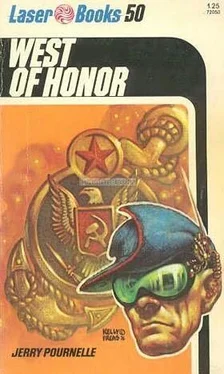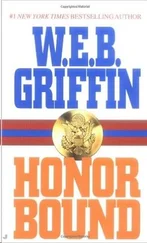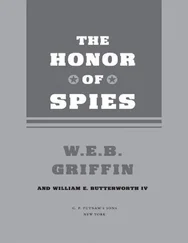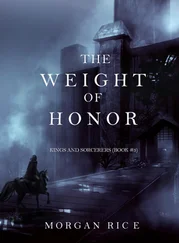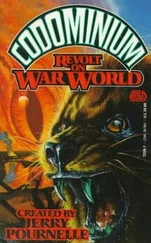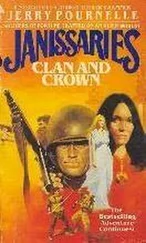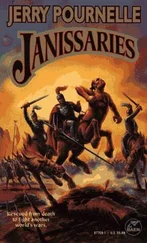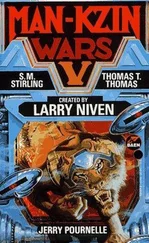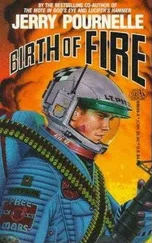Jerry Pournelle - West of Honor
Здесь есть возможность читать онлайн «Jerry Pournelle - West of Honor» весь текст электронной книги совершенно бесплатно (целиком полную версию без сокращений). В некоторых случаях можно слушать аудио, скачать через торрент в формате fb2 и присутствует краткое содержание. Жанр: Фантастика и фэнтези, на английском языке. Описание произведения, (предисловие) а так же отзывы посетителей доступны на портале библиотеки ЛибКат.
- Название:West of Honor
- Автор:
- Жанр:
- Год:неизвестен
- ISBN:нет данных
- Рейтинг книги:3 / 5. Голосов: 1
-
Избранное:Добавить в избранное
- Отзывы:
-
Ваша оценка:
- 60
- 1
- 2
- 3
- 4
- 5
West of Honor: краткое содержание, описание и аннотация
Предлагаем к чтению аннотацию, описание, краткое содержание или предисловие (зависит от того, что написал сам автор книги «West of Honor»). Если вы не нашли необходимую информацию о книге — напишите в комментариях, мы постараемся отыскать её.
West of Honor — читать онлайн бесплатно полную книгу (весь текст) целиком
Ниже представлен текст книги, разбитый по страницам. Система сохранения места последней прочитанной страницы, позволяет с удобством читать онлайн бесплатно книгу «West of Honor», без необходимости каждый раз заново искать на чём Вы остановились. Поставьте закладку, и сможете в любой момент перейти на страницу, на которой закончили чтение.
Интервал:
Закладка:
"We'll just help the Lord out a bit," Woodrow said. "Get a rope!"
"Yeah," Seeton said. "I guess. Kathryn?"
"Get it. Give it to me, I want to put it around his neck." She looked down at the raider. "Why?" she demanded. "Why?"
For a moment the boy's eyes met hers. "Why not?"
Three men dug graves on the knoll above the valley. Kathryn came up the hill silently, and they did not see her at first. When they did they stopped working, but she said nothing, and after a while they dug again. Their shovels bit into the rich soil.
"You're digging too many graves," Kathryn said. "Fill one in."
"But-"
"My grandfather will not be buried here," Kathryn said,
The men stopped digging. They looked at the girl and her bloodstained coveralls, then glanced out at the horizon where the rest of the commandos had gone. There was dust out there. The riders were coming home. They wouldn't have caught the raiders before they went into the hills. One of the gravediggers decided that next spring he would take his family and find new lands. It was better than this. But he wondered if the convicts would not follow wherever he went. When men work the earth, others will come to kill and steal.
"Where?" he asked finally.
"Bury Amos in his doorway," Kathryn said.
"That is a terrible thing, to bury a man in his own door. He will not rest-"
"I don't want him to rest," Kathryn said. "I want him to walk! I want him to walk and remind us all of what Earth has done to us!"
CHAPTER 1
"Hear this. All hands brace for reentry. Hear this."
"Seat straps, Lieutenant," Sergeant Cernan said.
"Right." I pulled the shoulder straps down into place and latched them, then looked out at Arrarat.
The planet had a bleak look, not like Earth. There were few clouds and lots of desert. There were also heavy jungle forests near the equator. The only cultivated lands I could see were on a narrow strip at the northern edge of a nearly landlocked sea. South of the sea lay another continent. It looked dry and dusty, desert land where men had left no mark in passing-if anyone had ever been there at all.
Northward and westward from the cultivated strip were hills and forests, high desert plateaus, high mountains and rugged canyons. There were streaks through the forests and across the hills, narrow roads not much more than tracks. When the troop ship circled lower I could see villages and towns, and every one of them had walls or a stockade and ditch. They looked like tiny fortresses.
The ship circled until it had lost enough speed to make a landing approach. Then it ran eastward, and we could see the city. My briefing folio said it was the only city on Arrarat. It stood on a high bluff above the sea and seemed huddled in on itself. It looked like a medieval walled town, but it was made of modern concrete, and adobe with plastic waterproofing, and other materials medieval craftsmen probably wouldn't have used if they'd had them.
As the ship passed over the city at 2000 meters it became obvious that there were really two cities run together, with only a wall between them. Neither was very large. The oldest part of the city, Harmony, showed little evidence of planning: there were little narrow streets running at all angles, and the public squares were randomly placed. The northern part, Garrison, was smaller, but it had streets at precise right angles, and a big, public plaza stood opposite the square fort at the northern edge.
All the buildings were low, with only a couple more than two stories high. The roofs were red tile, and the walls were whitewashed. Harmony reminded me of towns I'd seen in Mexico. Bright sun shone off the bay below the city bluff. Garrison was a harsher place, all neat and orderly, everything strictly functional. There was a square fortress at its northern edge. My new home.
I was a very junior lieutenant of CoDominium Marines, only three months out of the academy and green as grass. It was academy practice to commission the top 30 graduates in each class. The rest went out as cadets and midshipmen for more training. I was proud of the bars on my epaulettes, but I was also a bit scared. I'd never been with troops before, and I'd never had any friends from the working classes so I didn't know much about the kind of people who enlist in the Line marines. I knew plenty of stories, of course. Men join to get away from their wives, or because some judge gives them a chance to enlist before passing sentence. Others are recruited out of Bureau of Relocation ships. Most come from Citizen classes, and my family's always been taxpayer.
It was just as well for me that my father was a taxpayer. I grew up in the American southwest, where things haven't changed so much since the CoDominium. We still think we're free men. When my father died, Mom and I tried to run the ranch the way he had, as if it still belonged to us. It did, on paper, but we didn't have his contacts in the bureaucracy. We didn't understand all the regulations and labor restrictions, and we didn't know whom to bribe when we broke the rules. When we got in real trouble I tried to keep the government people from taking possession, and that wasn't too good an idea. The judge was an old friend of my father's and offered to get me into the academy. The U.S. courts don't have jurisdiction over CoDominium officers.
I didn't have a lot of choices, and CD Fleet service looked pretty good just then. I'd not only get out of trouble, I'd leave Earth. Mom was getting married again, so she'd be all right. The government had the ranch and we'd never get it back. I was young enough to think soldiering was a romantic idea, and Judge Hamilton made it pretty clear I was going to have to do something.
"Look, Hal," he told me. "Your dad should have left. There's no place for people like us. They want people who want security, who'll obey the rules. People who like the welfare state. Not ornery cusses like you and your father. Even if I can get you off this time, you'll get in trouble again. You're going to have to leave, and you'll be better off as a CD officer than as a colonist."
He was right. I wondered why he stayed. Same reason my father did, I supposed. Getting older, used to his home, not ready to go make a new start somewhere. I hadn't said anything, but he must have guessed what I was thinking.
"I can still do some good here. I'm a judge for life; they can't take that away from me without damned good reasons, and I can still help kids like you. There's nothing here for you, Hal. The future's out there. New worlds, new ones found every year. Serve out a hitch in the Fleet service. See what's out there and decide where you want your kids to grow up. Someplace free."
I couldn't think of anything else to do, so I let him get me into the academy. It had been all right here. The Fleet has its own brotherhood. I'd been a loner most of my life, not because I wanted to be-God knows I would have liked to have friends!-but because I didn't fit anywhere. The academy was different. It's hard to say how. One thing, though, there aren't any incompetents whining to have the world take care of them. Not that we didn't look out for each other. If a classmate's soft on math you help him, and if somebody has trouble with electronics-I did-a sharper classmate sits up nights boning with him. But if after all that he can't cut it, he's out. There's more to it than that, though. I can't explain the Fleet's sense of brotherhood, but it's real enough, and it was what I'd been looking for all my life.
I was there two and a half years, and we worked all the time, cramming everything from weapons' maintenance to basic science to civil engineering and road construction. I finished seventh in the class and got my commission. A month's leave to say goodbye to my mother and my girl- only I didn't really have a girl, I just liked to pretend I did-and I was on an Olympic Lines passenger ship headed for another star system.
Читать дальшеИнтервал:
Закладка:
Похожие книги на «West of Honor»
Представляем Вашему вниманию похожие книги на «West of Honor» списком для выбора. Мы отобрали схожую по названию и смыслу литературу в надежде предоставить читателям больше вариантов отыскать новые, интересные, ещё непрочитанные произведения.
Обсуждение, отзывы о книге «West of Honor» и просто собственные мнения читателей. Оставьте ваши комментарии, напишите, что Вы думаете о произведении, его смысле или главных героях. Укажите что конкретно понравилось, а что нет, и почему Вы так считаете.
